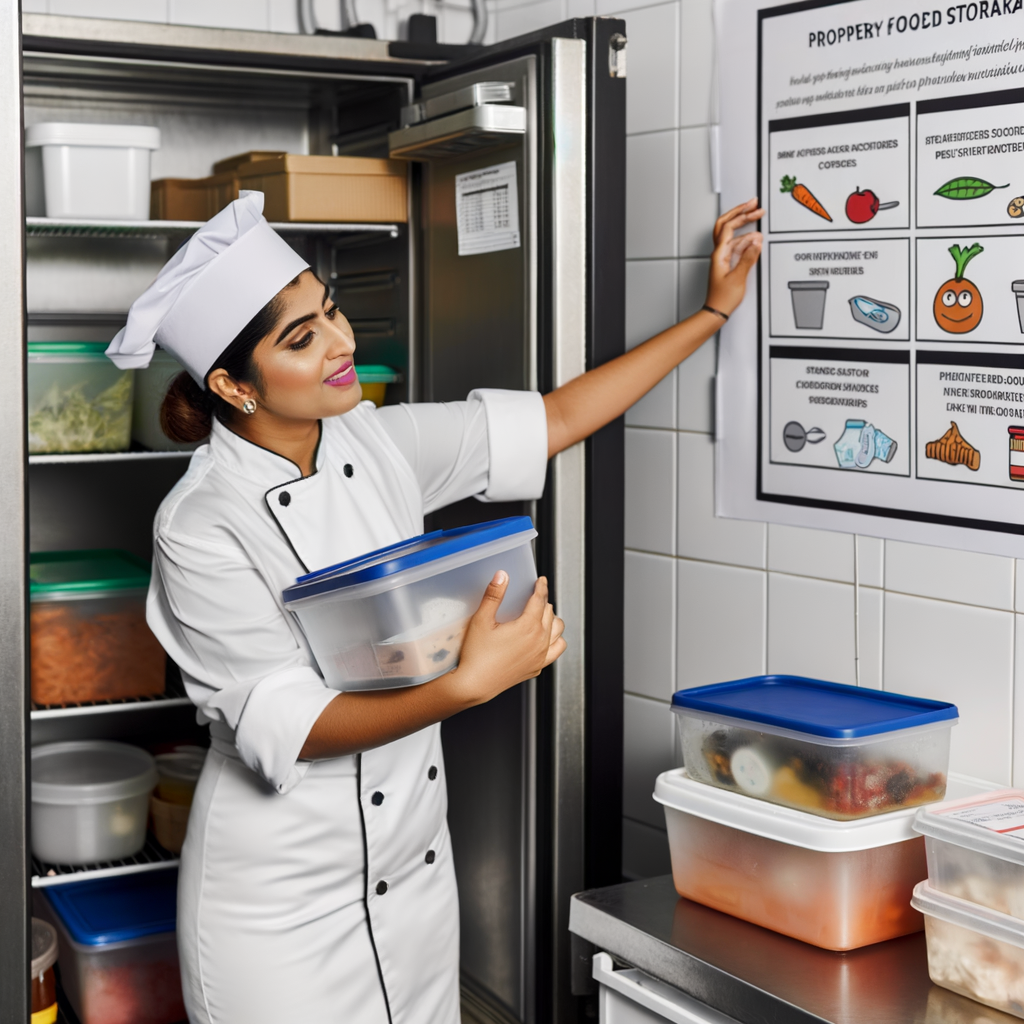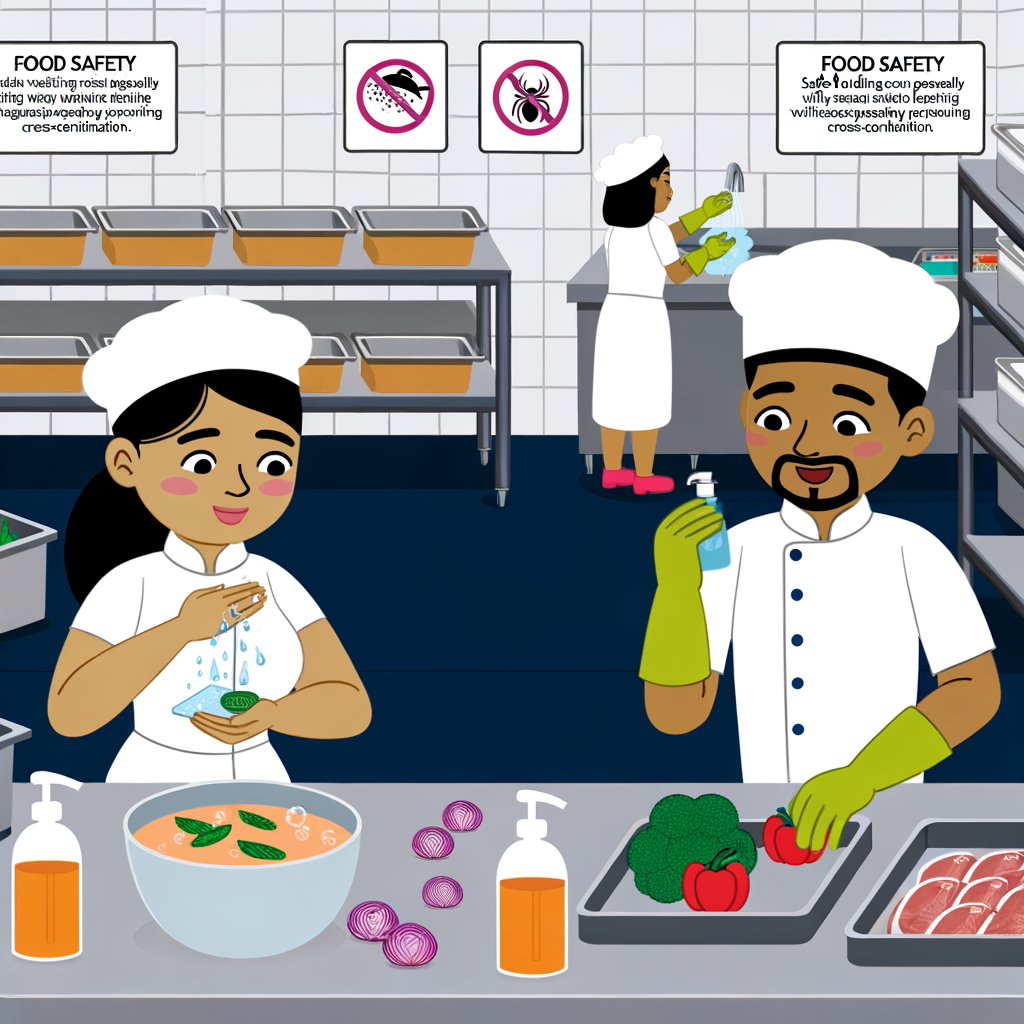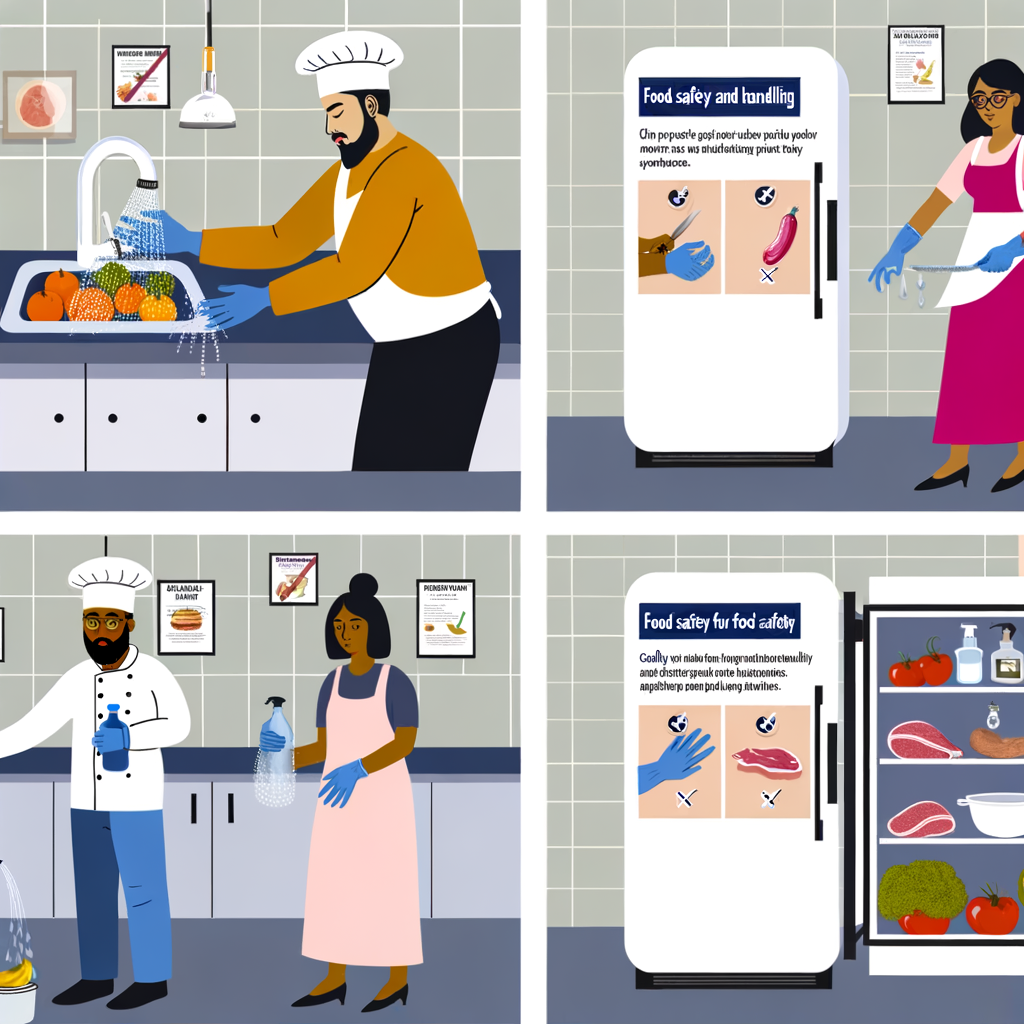Food safety is a crucial aspect of any culinary experience, whether it be dining out or cooking at home. As a chef, it is our responsibility to ensure that the food we serve is not only delicious, but also safe for consumption. One of the key factors in maintaining food safety is proper storage. In this article, we will explore the importance of proper storage in ensuring food safety.
Proper storage starts with proper handling. It is important to always handle food with clean hands and in a clean environment. This helps prevent contamination from bacteria and other harmful microorganisms. Once the food is prepared, it is essential to store it at the correct temperature. Perishable foods, such as meats, dairy products, and cooked dishes, should be stored at or below 40°F (4°C) to prevent the growth of bacteria. Non-perishable items, like canned goods and dry goods, should be stored in a cool, dry place.
In addition to temperature, the way in which food is stored also plays a crucial role in food safety. Raw meats should always be stored at the bottom of the fridge to prevent any drippings from contaminating other foods. It is also important to keep raw meats separate from cooked foods to avoid cross-contamination. Leftovers should be stored in airtight containers and consumed within a few days to prevent spoilage.
Proper storage not only ensures food safety, but it also helps maintain the quality and flavor of the food. By following these storage guidelines, we can provide our customers with a safe and enjoyable dining experience. As chefs, it is our duty to prioritize food safety and take the necessary precautions to prevent foodborne illnesses. Let’s continue to educate ourselves and our staff on the importance of proper storage in maintaining food safety.





